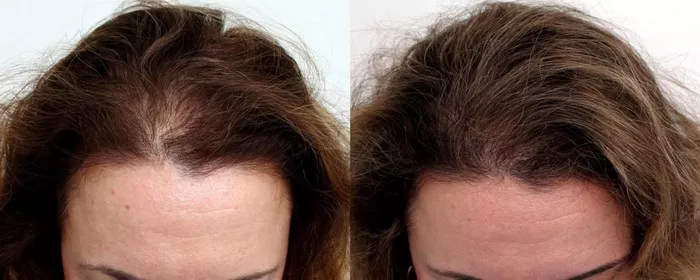Gastric sleeve surgery, also known as sleeve gastrectomy, has become a popular choice for individuals seeking effective weight loss solutions. This surgical procedure involves reducing the size of the stomach to promote weight loss by limiting food intake. While it can lead to significant improvements in health and quality of life, some patients may experience unexpected side effects, including hair loss. Understanding why hair loss occurs after gastric sleeve surgery is crucial for patients to manage their expectations and take appropriate measures to mitigate this issue.
The Link Between Weight Loss Surgery and Hair Loss
Hair loss, medically known as telogen effluvium, is a common concern among individuals who undergo weight loss surgery, including gastric sleeve procedures. Telogen effluvium is characterized by excessive shedding of hair, which can result in noticeable thinning or bald patches. Although the exact mechanisms behind post-surgery hair loss are not fully understood, several factors contribute to this phenomenon.
Nutritional Deficiencies
One of the primary reasons for hair loss after gastric sleeve surgery is nutritional deficiencies. Following the procedure, patients often experience rapid weight loss, which can lead to inadequate intake of essential nutrients, including vitamins, minerals, and protein. These nutrients play a vital role in maintaining healthy hair growth and follicle function. Insufficient intake or poor absorption of nutrients can disrupt the hair growth cycle, resulting in increased shedding and thinning of hair.
Protein Deficiency
Protein is an essential nutrient for hair health, as it provides the building blocks for keratin, the protein that makes up hair strands. After gastric sleeve surgery, patients are typically advised to consume a high-protein diet to support healing and maintain muscle mass. However, some individuals may struggle to meet their protein requirements due to reduced appetite, dietary restrictions, or poor absorption of nutrients. Protein deficiency can weaken hair follicles and lead to increased hair shedding.
Vitamin and Mineral Deficiency
In addition to protein, certain vitamins and minerals are crucial for hair growth and maintenance. These include vitamin D, vitamin B12, iron, zinc, and biotin. Gastric sleeve surgery can affect the absorption of these nutrients, either due to reduced stomach capacity or changes in the digestive process. Deficiencies in these vitamins and minerals can disrupt the hair growth cycle and contribute to hair loss.
Hormonal Changes
Hormonal changes resulting from rapid weight loss and altered metabolism may also contribute to hair loss after gastric sleeve surgery. Significant weight loss can affect hormone levels in the body, including those related to thyroid function and stress response. Thyroid disorders, such as hypothyroidism or hyperthyroidism, can disrupt the hair growth cycle and lead to hair loss. Additionally, stress hormones like cortisol may play a role in triggering telogen effluvium.
Inflammation and Oxidative Stress
Surgery-induced inflammation and oxidative stress can also impact hair health. The body’s inflammatory response to surgery can affect various physiological processes, including hair follicle function. Oxidative stress, caused by an imbalance between antioxidants and free radicals, can damage cells and tissues, including those involved in hair growth. Managing inflammation and oxidative stress through proper nutrition and lifestyle modifications may help mitigate hair loss after gastric sleeve surgery.
Medication Use
Patients undergoing gastric sleeve surgery may be prescribed medications to manage pain, prevent infection, or support healing. Some medications, particularly those that affect hormone levels or nutrient absorption, may contribute to hair loss as a side effect. It’s essential for patients to discuss potential side effects of medications with their healthcare providers and explore alternative options if hair loss becomes a concern.
Post-Surgery Diet and Nutritional Supplementation
To minimize the risk of hair loss and support healthy hair growth after gastric sleeve surgery, patients should focus on maintaining a balanced diet and addressing nutritional deficiencies. A diet rich in lean protein, fruits, vegetables, whole grains, and healthy fats can provide essential nutrients for hair health. Additionally, healthcare providers may recommend nutritional supplements, such as multivitamins, iron, vitamin D, vitamin B12, and biotin, to address specific deficiencies and promote optimal hair growth.
Gradual Weight Loss
While rapid weight loss is often a desired outcome of gastric sleeve surgery, it’s essential for patients to achieve weight loss gradually to minimize the risk of hair loss and other complications. Gradual weight loss allows the body to adapt more effectively to changes in metabolism and nutrient intake, reducing the likelihood of nutritional deficiencies and hormonal imbalances that can contribute to hair loss.
Regular Monitoring and Follow-Up
Regular monitoring of nutritional status and hair health is essential for patients undergoing gastric sleeve surgery. Healthcare providers should closely monitor patients for signs of nutritional deficiencies, hormone imbalances, and other factors that may contribute to hair loss. Adjustments to diet, supplementation, and medication regimens may be necessary to address emerging issues and support optimal hair growth.
Conclusion
Hair loss after gastric sleeve surgery is a common but often temporary side effect that can be attributed to various factors, including nutritional deficiencies, hormonal changes, inflammation, oxidative stress, medication use, and rapid weight loss. By understanding the underlying causes of hair loss and taking proactive measures to address them, patients can minimize the impact on their hair health and promote optimal recovery and well-being following surgery. Close collaboration between patients and healthcare providers is essential to ensure comprehensive care and support throughout the post-surgery journey.


